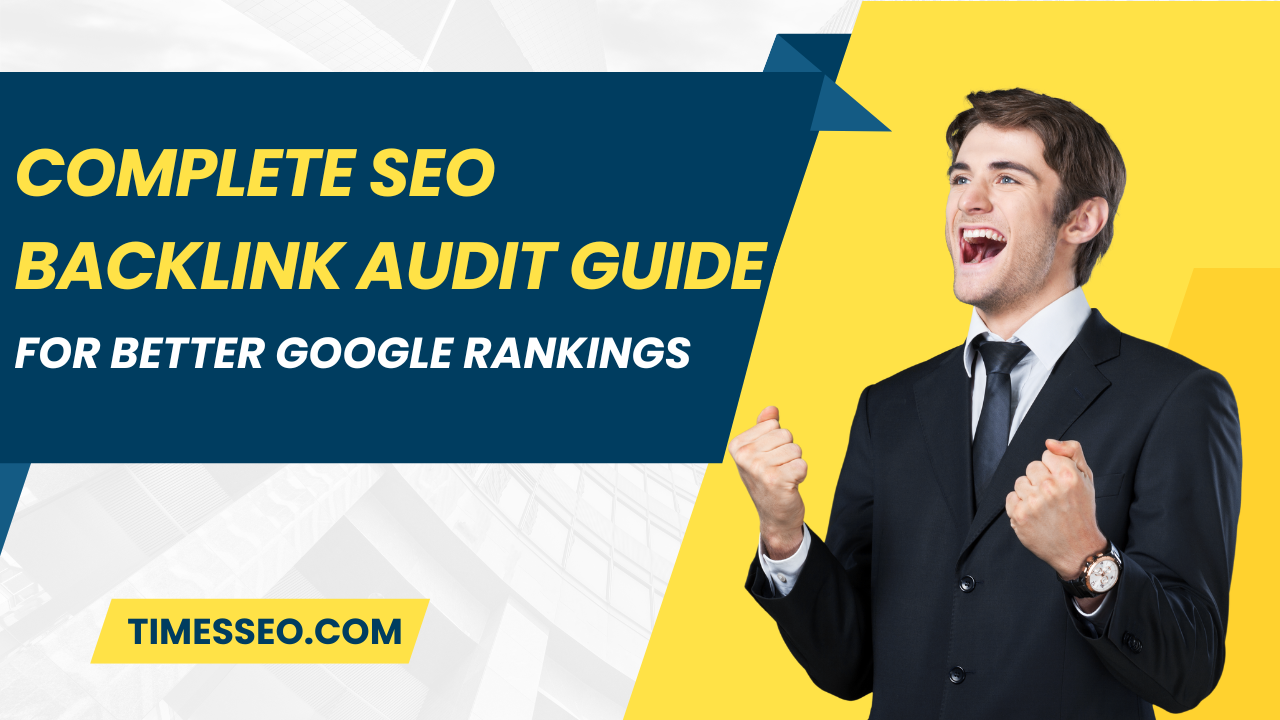
Why You Need This List of Keyword Research Tools
Discover why having a list of keyword research tools is essential for boosting your SEO strategy. Learn how the right tools save time, uncover hidden opportunities, and give you a competitive edge in search rankings.
Table of Contents
Introduction
Keywords are the heartbeat of SEO. Without them, your content floats in the digital void, unseen and unclicked. But here’s the catch—choosing the wrong keywords can tank your rankings and waste your efforts. That’s why you need the right tools. And not just any tools—you need this list of keyword research tools that actually deliver.
Understanding Keyword Research
What is Keyword Research?
Finding search phrases that people enter into Google and other search engines is the process. These insights help you create content that people are actively looking for.
The Link Between Search Intent and Keywords
Search intent—whether informational, navigational, or transactional—is what makes a keyword truly valuable.
Types of Keywords
- Short-tail keywords: Broad but highly competitive.
- Long-tail keywords: Specific, less competitive, and higher conversion rates.
- LSI keywords: Related terms that boost context and ranking.
The Role of Keywords in SEO
Keywords act like a compass, guiding both search engines and users toward your content. They decide whether your website stands out in the throng or comes up in the appropriate searches.
Why Choosing the Right Tools Matters
Not all keyword tools are built the same. While some offer useful insights, others present raw data. Using the right tool makes the difference between chasing empty traffic and attracting qualified leads.
Challenges Without the Right Keyword Tools
Wasted Time and Effort
Guessing keywords is like shooting arrows in the dark—you might hit, but it’s mostly luck.
Missing High-Value Opportunities
Without data-driven insights, you’ll overlook low-competition gems that could drive traffic.
Poor SEO Rankings
Using the wrong keywords keeps your content buried under competitors.
Benefits of Using Reliable Keyword Research Tools
Data-Driven Decisions
Tools provide concrete numbers—search volume, keyword difficulty, and CPC—that guide smart choices.
Discovering Untapped Niches
The right tools reveal hidden keyword opportunities no one else is targeting.
Gaining Competitive Advantage
You’ll see exactly what your competitors rank for and how to outdo them.
The Top Keyword Research Tools You Should Know
Google Keyword Planner
Key Features: Search volume, ad competition, and keyword suggestions.
Pros and Cons: Accurate but more suited for PPC advertisers.
SEMrush Keyword Magic Tool
Key Features: Huge keyword database, intent analysis, and competitive tracking.
Pros and Cons: Comprehensive but costly.
Ahrefs Keywords Explorer
Key Features: Click metrics, SERP overview, and keyword difficulty.
Pros and Cons: Very accurate but requires experience to use fully.
Ubersuggest
Key Features: Keyword ideas, site audit integration, and traffic estimations.
Benefits and Drawbacks: Easy to use, but restricted access to sophisticated data.
Moz Keyword Explorer
Key Features: SERP analysis, keyword priority score, and difficulty metrics.
Pros and Cons: Excellent UI but smaller keyword database.
KWFinder
Key Features: Focus on long-tail keywords, easy interface, and local SEO options.
Pros and Cons: Affordable but limited in suggestions.
AnswerThePublic
Key Features: Visual maps of questions and prepositions.
Pros and Cons: Great for content ideas but lacks deep metrics.
Serpstat
Key Features: Keyword clustering, competitor research, and all-in-one SEO suite.
Wide features but a higher learning curve are advantages and disadvantages.
KeywordTool.io
Key Features: Keyword ideas from Google, YouTube, Amazon, and Bing.
Pros and Cons: Excellent for multi-platform use but full features are paid.
Why You Need This List of Keyword Research Tools
Simplifies the Selection Process
With so many tools out there, a curated list saves you the headache of trial and error.
Provides Accurate and Actionable Insights
These tools don’t just give numbers—they give insights you can apply immediately.
Saves Time and Boosts Productivity
Instead of juggling dozens of tools, this list helps you pick the best ones quickly.
Free vs Paid Keyword Tools
Why Free Tools Work for Beginners
They give you a starting point without costing a dime.
When Paid Tools Are Worth the Investment
For serious SEO campaigns, paid tools provide deeper insights and competitive edge.
How to Choose the Right Keyword Tool for Your Needs
Match Features with Goals
If you’re targeting local SEO, KWFinder works great. For competitor tracking, Ahrefs or SEMrush wins.
Consider Ease of Use
If a tool feels too complex, you’re less likely to use it effectively.
Factor in Budget and Scalability
Start with affordable tools but prepare to scale as your SEO needs grow.
Pro Tips to Maximize the Value of Keyword Tools
Focus on Search Intent Over Volume
It is possible for a keyword with fewer searches but better intent to outperform high-volume keywords.
Use Multiple Tools for Accuracy
Cross-check data to ensure reliable insights.
Regularly Update Your Keyword Strategy
Trends change—so should your keyword targeting.
Conclusion
The correct tools make it easy to choose the right keywords, which is half the battle in SEO. This list isn’t just a roundup—it’s a roadmap to smarter decisions, better rankings, and stronger visibility. Use it to save time, uncover opportunities, and create content that actually resonates with your audience.
Frequently Asked Questions
Because no single tool has 100% accurate data—cross-checking improves results.
Ubersuggest and KWFinder are excellent starting points.
Yes, but they’re often limited compared to paid options.
At least quarterly, or whenever you plan new content.
No tool can guarantee rankings, but they improve your chances by guiding smarter strategies.
Table of Contents
Popular Posts
-
 Affordable Technical SEO Audit for Small Business: A Complete Guide26 Jun 2025 Blog
Affordable Technical SEO Audit for Small Business: A Complete Guide26 Jun 2025 Blog -
 How to Get an Affordable Technical SEO Audit for Small Business27 Jun 2025 Blog
How to Get an Affordable Technical SEO Audit for Small Business27 Jun 2025 Blog -
 The Ultimate Local SEO Audit Checklist for Startups28 Jun 2025 Blog
The Ultimate Local SEO Audit Checklist for Startups28 Jun 2025 Blog -
 Local SEO Audit Checklist for Startups: A Beginner’s Guide28 Jun 2025 Blog
Local SEO Audit Checklist for Startups: A Beginner’s Guide28 Jun 2025 Blog -
 Top On-Page SEO Audit Steps for Service Websites Every Business Should Know29 Jun 2025 Blog
Top On-Page SEO Audit Steps for Service Websites Every Business Should Know29 Jun 2025 Blog -
 Technical SEO for WordPress: The Ultimate Beginner’s Guide01 Jul 2025 Blog
Technical SEO for WordPress: The Ultimate Beginner’s Guide01 Jul 2025 Blog -
 The Impact of On-Page SEO Audit Steps for Service Websites on UX01 Jul 2025 Blog
The Impact of On-Page SEO Audit Steps for Service Websites on UX01 Jul 2025 Blog -
 Technical Mobile SEO Audit Tips for Developers02 Jul 2025 Blog
Technical Mobile SEO Audit Tips for Developers02 Jul 2025 Blog -
 Complete SEO Backlink Audit Guide for Better Google Rankings03 Jul 2025 Blog
Complete SEO Backlink Audit Guide for Better Google Rankings03 Jul 2025 Blog -
 Boost Your Rankings with Technical SEO for WordPress01 Jul 2025 Blog
Boost Your Rankings with Technical SEO for WordPress01 Jul 2025 Blog






